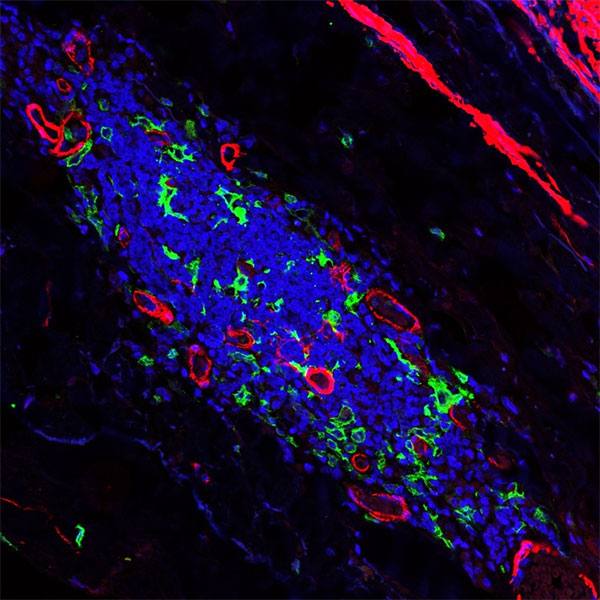-
Zeroing in on APOE Gene to Better Understand Aging, Alzheimer’s Disease
The apolipoprotein E, or APOE, gene is the strongest genetic risk factor for Alzheimer's disease, as most people who get the disease carry the gene. The gene has far-reaching effects on these patients, including the role it plays in age-related cognitive decline and vascular cognitive impairment.
Mayo Clinic and collaborators are opening the door to new research projects to understand the pathobiology of APOE so new individualized therapies can target it to prevent — and perhaps cure — the devastating health conditions it causes.
"While significant progress has been made in identifying APOE pathways in the brain, there are critical gaps in knowledge to guide therapeutic strategies," says Guojun Bu, Ph.D., who will lead the research projects.

Mayo Clinic researchers will work with investigators from Washington University in St. Louis and Icahn School of Medicine at Mount Sinai in New York to find answers to complex questions related to aging diseases.
Researchers will share data sets, model systems, and knowledge with the broader scientific community, creating a network for APOE-related aging studies. The range of expertise spans structural biology, biochemistry, biophysics, cellular neuroscience, neuropathology, biomarker discovery, microglial and vascular biology, multi-omics, and biostatistics.
APOE and its genetic variants
The APOE gene, which makes a protein involved in metabolizing fats in the body, has three common forms:
- APOE-e2 has a protective effect and reduces the risk of developing Alzheimer's disease.
- APOE-e3 is the most common form and doesn't appear to decrease or increase risk.
- APOE-e4 increases risk.
Researchers hypothesize that structural differences and related biochemical properties of these three forms of the APOE gene may initiate a cascade of events at the cellular and systems, or organism, level, driving age-related pathological conditions including Alzheimer's disease. Their studies will investigate APOE to determine if targeting these structural and functional differences disrupt the disease process.
The research will include:
- Addressing the molecular differences of the three APOE forms to generate insights for functional and pathological outcomes.
- Interactively studying how APOE forms made in different brain cell types affect lipid distribution, immune responses and cognitive functions as they relate to Alzheimer's disease and other aging-related conditions.
- Carrying out genomic and genetic analyses to identify modifiers of APOE to inform precision medicine.
At Mayo Clinic, Dr. Bu and his team, recognized for research leadership, have focused their study on the neurobiology of Alzheimer's disease. The team has made headway in understanding the mechanisms of APOE and its high-risk variant, APOE-e4, and is now exploring the use of stem cells to grow 3D models of the human brain. In addition, studies have drawn on the resources of the Mayo Clinic Brain Bank, which houses more than 9,000 brain samples donated by patients with neurodegenerative diseases, including Alzheimer's disease. The new projects will complement work underway at the Mayo Clinic Alzheimer’s Disease Research Center, Mayo Clinic Robert and Arlene Kogod Center on Aging, and Mayo Clinic's Center for Regenerative Medicine.
The team of Mayo Clinic researchers also includes Dennis Dickson, M.D.; Yan Asmann, Ph.D.; Takahisa Kanekiyo, M.D., Ph.D.; Chia-Chen Liu, Ph.D.; Melissa Murray, Ph.D.; Na Zhao, M.D., Ph.D.; Yuka Martens, Ph.D.; and Long-Jun Wu, Ph.D.
The research projects are supported by a $33 million grant from the National Institute on Aging under award U19AG069701.







